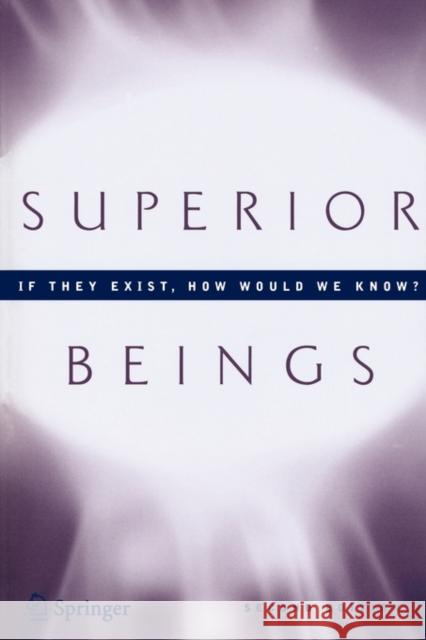Superior Beings. If They Exist, How Would We Know?: Game-Theoretic Implications of Omnipotence, Omniscience, Immortality, and Incomprehensibility » książka
Superior Beings. If They Exist, How Would We Know?: Game-Theoretic Implications of Omnipotence, Omniscience, Immortality, and Incomprehensibility
ISBN-13: 9780387480657 / Angielski / Miękka / 2006 / 202 str.
Superior Beings. If They Exist, How Would We Know?: Game-Theoretic Implications of Omnipotence, Omniscience, Immortality, and Incomprehensibility
ISBN-13: 9780387480657 / Angielski / Miękka / 2006 / 202 str.
(netto: 134,15 VAT: 5%)
Najniższa cena z 30 dni: 134,90
ok. 16-18 dni roboczych.
Darmowa dostawa!
The same is true of applications of game theory to history, philosophy religion, and the other humanities. In particular, I know of no attempts to apply game theory to the kinds of p- losophy-of-religion and theology questions that I explored in Superior Beings, By contrast; the nexus between science and religion has been thoroughly analyzed using other methods of inquiry as evidenced by Charles L. Harper Jr (ed. ), Spiritual Information: 100 Perspectives on Science and Religion (West Conshohocken, PA: Templeton Foundation Press, 2006), a huge collection put together in honor of Sir John Templeton's ninetieth birthday Sir John, through the Templeton Foundation, is the primary propo- nent and the major benefactor of studies in science and religion today How science and religion are (or are not) connected is, of course, an old subject. It is also a controversial one, extending at least from Galileo's trial in 1633 to the teaching of evolution today. While game theory is a mathematical theory, Superior Beings is emphatically not a scientific work, wherein a theory is tested. Rather, it is an attempt to interpret and explain important philo- sophical, religious, and theological questions in terms of the rational choices of ordinary human beings, who are assumed to play games with a superior being. The game theory I use is nonstandard.











